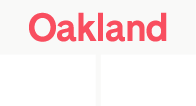A major transformation of the private rented sector (PRS) is about to happen. Whether you are renting a home, letting a property or thinking of becoming a landlord, it’s vital to know how the new rules will affect you.
What is the Renters’ Rights Act?
Having completed its long journey through parliament, this revolutionary Bill will now be known as the Renters’ Rights Act 2025. The legislation promises to strengthen tenants’ rights and outlaw rogue landlords. Our busy letting agents in Ilford have joined forces with our hard-working letting agents in Newbury Park to outline the Act’s key points.
1) The end of Section 21 evictions
Previously under Section 21, landlords could demand that a tenant quit their rented home without giving a reason (this practice became known as a ‘no fault’ eviction). Blameless tenants could be removed for asking for necessary repairs, or because they questioned an unreasonable rent rise.
From May 1st 2026, landlords will only be able to remove a tenant by issuing a Section 8 notice. This notice can be used against tenants who breach their agreements, damage the property or indulge in anti-social behaviour. Tenants who fail to pay rent over a three month period can also be legally evicted.
Where the tenant is not at fault, landlords have the right to take back their properties for a set of specific reasons, enshrined in law. These include needing to sell the property or undertake building works that make it temporarily uninhabitable. Notice to quit can also be served if the landlord or a close family member wants to move into the property themselves (as their main home). However, the tenant has the right to remain in their rented home for the first 12 months of a tenancy.
2) No more ASTs
One of the most eye-catching features of the Act is the decision to end Assured Shorthold Tenancies (ASTs). From May next year all existing fixed-term tenancies will become ‘periodic’: that means the agreement will simply roll over, without a specific end date.
The change will take place on 1st May. Leading up to that date, landlords must tell their tenants about new rules and, if the original agreement wasn’t formally written down, provide a written statement. Tenants should learn about their new responsibilities and rights, including giving two months’ notice to quit.
3) New rules to curb unreasonable rent hikes
Under the new rules, landlords will only be able to increase rents on an annual basis, using a Section 13 notice. The level of rent requested must be consistent with market rates: tenants will be able to challenge unfair increases with support from a new Ombudsman service.
The Act also signals an end to ‘bidding wars’, where the right to rent a popular property can be won by the highest bidder. In April 2024 it was reported that almost one in five applicants was losing out due to unregulated bidding practices. Under the new legislation, rental properties can only be let for the cost advertised.
4) Blanket bans to be outlawed
Landlords will no longer be able to enforce blanket bans on tenants with children, or those in receipt of benefits. This rule has been introduced to crack down on discrimination, and landlords who do not comply could face compensation claims starting from £1,200.
Tenants who want to keep pets will also have their rights strengthened. Going forward, landlords cannot ‘unreasonably’ turn down a tenant’s request to keep a pet.
5) Higher quality rental homes with the Decent Homes Standard
The Decent Homes Standard (DHS), originally introduced for social housing, will soon apply to the private rented sector. This means minimum standards will be set for private rental properties, with the new rules applying from 2030 onwards. Under the DHS, rented homes are required to be warm, weatherproof, free from dangerous hazards and maintained in a reasonable state of repair.
Awaab’s Law was created to prevent damp and dangerous mould in social housing and will be applied to the PRS in 2030. At the same time a minimum energy efficiency requirement of EPC C will be applied to all rental properties.
6) More transparency and greater accountability
The government plans to introduce new official bodies and systems over the next few years.
A PRS database carrying details of each landlord and rental property will be rolled out nationally from 2026.
By 2028 landlords will be mandated to join a new Ombudsman service which offers a faster, fairer means of settling landlord/tenant disputes without resorting to court action.
How can I find out more?
Our letting agents are committed to keeping abreast of all legal changes that affect renters and landlords, so simply follow this blog to stay updated. Meanwhile, if you’re looking for your ideal rental property in east London, why not give us a call?
Get in touch via 020 3972 7341 or email info@oaklandestates.co.uk
Meanwhile, if you’d like to find your dream home or properties to rent in Ilford, wanstead, Newbury Park, Barkingside and surrounding areas, check the links below
Properties for sale in Ilford and Barkingside
Properties to rent in Ilford and Barkingside
Don’t forget to follow our socials for the latest property market advice and listings:
https://www.facebook.com/Oakland-Estates-1426149597689066/?fref=ts





